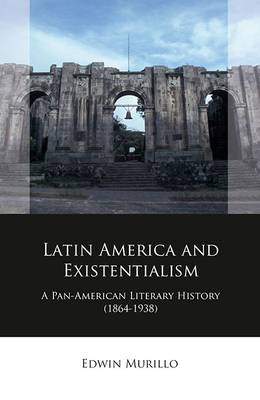
- Retrait gratuit dans votre magasin Club
- 7.000.000 titres dans notre catalogue
- Payer en toute sécurité
- Toujours un magasin près de chez vous
- Retrait gratuit dans votre magasin Club
- 7.000.0000 titres dans notre catalogue
- Payer en toute sécurité
- Toujours un magasin près de chez vous
100,95 €
+ 201 points
Description
An illuminating reevaluation of Latin America's importance to existentialist thought. This book is a comparative study of existentialism in Latin America, addressing and rectifying Latin America's subordinated position in the existentialist canon. It is an intellectual history that prioritizes literature and contextualizes Latin America's philosophical contributions from the 1880s to the late 1930s, decades that coincide with the canon's foundational years. Using a Pan-American approach, the book discusses key figures such as Juan Carlos Onetti, Carlos Astrada, and Ernesto Sábato within the broader context of Latin American existentialism and examines writers from less studied regions, such as Brazil's Machado de Assis and Graciliano Ramos, Colombia's José Asunción Silva, Cuba's Enrique Labrador Ruiz, and Chile's María Luisa Bombal.
Spécifications
Parties prenantes
- Auteur(s) :
- Editeur:
Contenu
- Nombre de pages :
- 344
- Langue:
- Anglais
- Collection :
Caractéristiques
- EAN:
- 9781837720002
- Date de parution :
- 04-08-23
- Format:
- Livre relié
- Format numérique:
- Genaaid
- Dimensions :
- 133 mm x 216 mm
- Poids :
- 524 g

Les avis
Nous publions uniquement les avis qui respectent les conditions requises. Consultez nos conditions pour les avis.






